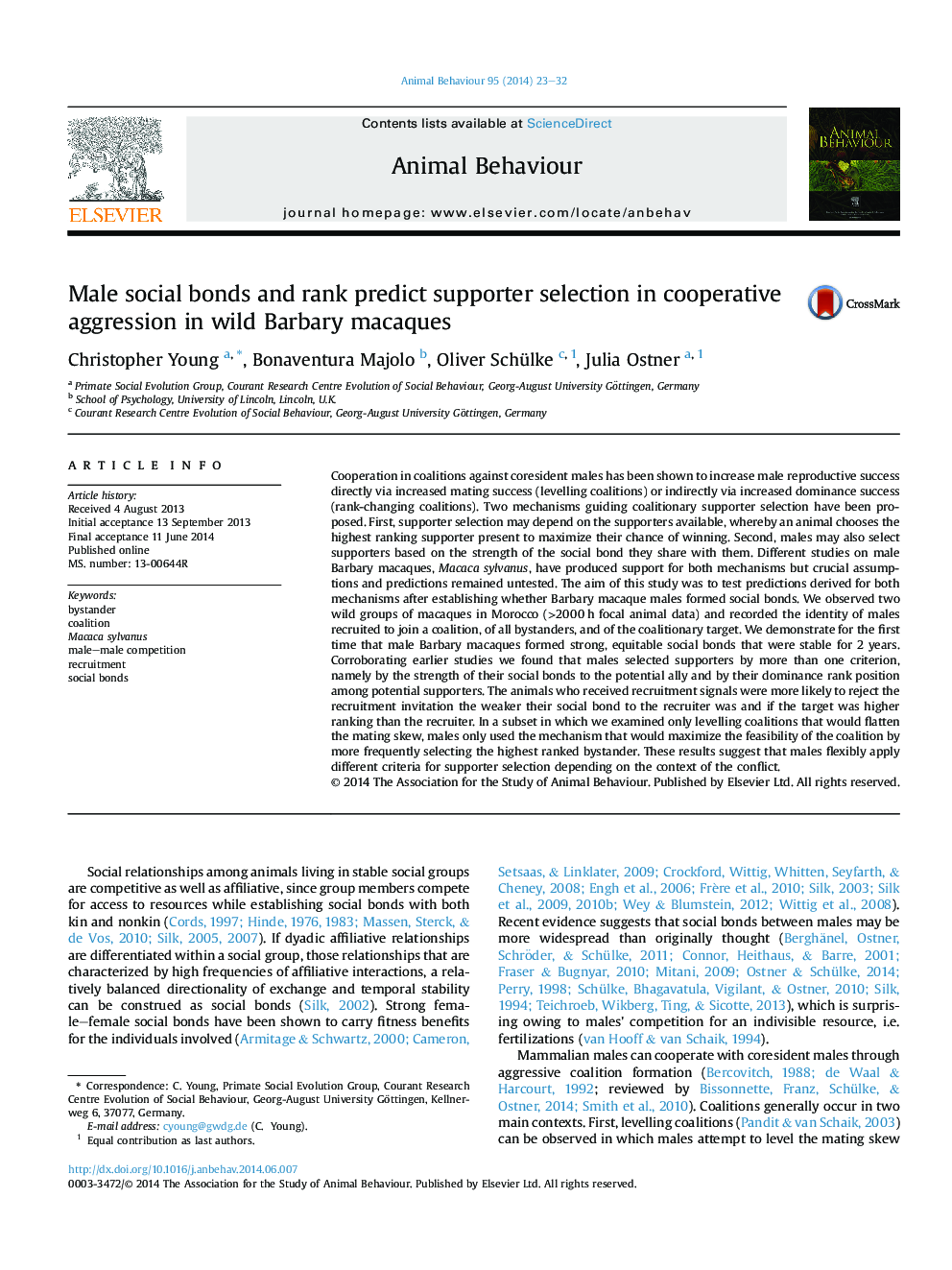| کد مقاله | کد نشریه | سال انتشار | مقاله انگلیسی | نسخه تمام متن |
|---|---|---|---|---|
| 8490362 | 1552233 | 2014 | 10 صفحه PDF | دانلود رایگان |
عنوان انگلیسی مقاله ISI
Male social bonds and rank predict supporter selection in cooperative aggression in wild Barbary macaques
دانلود مقاله + سفارش ترجمه
دانلود مقاله ISI انگلیسی
رایگان برای ایرانیان
کلمات کلیدی
موضوعات مرتبط
علوم زیستی و بیوفناوری
علوم کشاورزی و بیولوژیک
علوم دامی و جانورشناسی
پیش نمایش صفحه اول مقاله

چکیده انگلیسی
Cooperation in coalitions against coresident males has been shown to increase male reproductive success directly via increased mating success (levelling coalitions) or indirectly via increased dominance success (rank-changing coalitions). Two mechanisms guiding coalitionary supporter selection have been proposed. First, supporter selection may depend on the supporters available, whereby an animal chooses the highest ranking supporter present to maximize their chance of winning. Second, males may also select supporters based on the strength of the social bond they share with them. Different studies on male Barbary macaques, Macaca sylvanus, have produced support for both mechanisms but crucial assumptions and predictions remained untested. The aim of this study was to test predictions derived for both mechanisms after establishing whether Barbary macaque males formed social bonds. We observed two wild groups of macaques in Morocco (>2000Â h focal animal data) and recorded the identity of males recruited to join a coalition, of all bystanders, and of the coalitionary target. We demonstrate for the first time that male Barbary macaques formed strong, equitable social bonds that were stable for 2 years. Corroborating earlier studies we found that males selected supporters by more than one criterion, namely by the strength of their social bonds to the potential ally and by their dominance rank position among potential supporters. The animals who received recruitment signals were more likely to reject the recruitment invitation the weaker their social bond to the recruiter was and if the target was higher ranking than the recruiter. In a subset in which we examined only levelling coalitions that would flatten the mating skew, males only used the mechanism that would maximize the feasibility of the coalition by more frequently selecting the highest ranked bystander. These results suggest that males flexibly apply different criteria for supporter selection depending on the context of the conflict.
ناشر
Database: Elsevier - ScienceDirect (ساینس دایرکت)
Journal: Animal Behaviour - Volume 95, September 2014, Pages 23-32
Journal: Animal Behaviour - Volume 95, September 2014, Pages 23-32
نویسندگان
Christopher Young, Bonaventura Majolo, Oliver Schülke, Julia Ostner,